LETTER TO THE EDITOR
11th Province : The Fountainhead of Southern Cameroons Denialism
Dear Sir:
I am glad we are having this conversation. I take it that your ‘political correctness’ is due to the office you hold. But this is no longer the time for double-speak and ‘convenient truths’ and ‘managed denunciations’– wrapped in wooly, windy, floating, amoebic and infinitely elastic phraseologies. Granted, no one can claim monopoly power over the interpretation of collective memory, but history is never neutral.
It is a turf shaped by competing memories, aspirations, and interpretations. I believe the argument for a Southern Cameroons state (under whatever configuration) has been won. No power can be exercised, no act of repression can endure without a theory of legitimation.
Through books, articles, op-eds and social media posts, Francophone intellectuals have been forced to accept their guilt – TV panels on the subject have been deserted. This is where we must continue to deprive la République du Cameroun of legitimacy. However, I have the impression that Anglophone scholarship, in Cameroon, was groomed in excessive empiricism and simplistic generalizations – limited to mezzanine, events-driven and episodic circumstantialities. Little attention has been paid to deep-seated structural dysfunctionalities. THE INDEPENDENTIST fills a void in this regard.
The ‘11th Province’
The term ‘11th province’ was first coined in 1991 by Beltus Bejanga (a Kumba resident of French Cameroon ancestry) following their exclusion from the South-West Elites Association (SWELA).
Though it could be mistaken for a ‘protest identity’, the ‘11th province’ is inherently a ‘denialist identity’. It refers to the progeny of those French Cameroon immigrés who denied and opposed Southern Cameroons’ stand-alone nationhood and international identity – and refused to undergo the natural processes of integration and nationalization. Ultimately, the ‘11th province’ tag only becomes problematic with respect to the political representation of this community. But was it political participation they sought ? Or was political representation a decoy for a wider scheme ? In the post-unitary state Cameroon, what accounts for their acute absence in the Anglophone political landscape ? Have they been truely absent ? Or have they been operating in the shadows ? These ‘trojan horses’ and foot-soldier denialists are the bane of Southern Cameroons de-internationalisation, de-nationalization and de-indigenization.
Ethnic loyalty and Nationalism
We are agreed that ethnicity and identity are complex issues and should not be treated as binary. However, every identity community must be foregrounded by a suprintending normative framework ; in this case, the westphalian legality – International personality, Political community (constitutional, institutional, governmental framework – structures, systems and processes), Cultural community and Spiritual communities.
Internationally, Southern Cameroons is the subject of multiple multilaterally-endorsed boundary treaties and UN resolutions. The people were conferred the right to self-determination ; developed a domestic jurisdiction, and were represented in the comity of nations by a stand-alone diplomatic personality – ‘government of Southern Cameroons’.
In pre-colonial Africa, ethnic communities constituted singular political, cultural and spiritual communities. Colonisation and westphalian implantation occasioned the spiritual community – political community bifurcation. The political identity is a construct ; governed by laws, rules and regulations.- a modal identity – what we have been fashioned and conditioned into becoming. It is at this level that identities can be instrumentalized. Politically, Southern Cameroons constituted a political community – with a constitution, institutions and a central authority – ‘government of Southern Cameroons’. It is a nation.
It follows that spiritual communities within a nation, and aspects of indigeneity and ancestrality must be defined based on the westphalian framework. Indigeneity is a social label. Ancestrality is residual identity – bloodline or genealogical connection, psychic connection with a territory and community of persons – shared values and beliefs, common practices and places of worships – shrines, rites, ceremonies… This is a nation in the enthnographic sense of the word, a spiritual community. This is the residual identity – what remains of the ethnographic, precolonial identity – that which has not been legislated.
It is territory-based – highly localised and deterministic. This is our primordial identity, the true meaning of fatherland – a place, community and cause over which someone can spill his blood to defend. No one can spill his blood to defend a territory in which he enjoys no spiritual identity.
This explains why there is not a single ‘11th province’ amongst the ranks of the Amba Boys.
Sandwiched between the modal and primordial identity is the cultural community. It is where the political and spiritual cohabit – sharing the same space, and transferring competences such as culinary and vestimental traditions, intermarriages, schools, alumni and professional associations…
It is inherently heterogenous – open-ended, all-encompassing, potentially multiracial, multiethnic and multilingual. It is the theatre of social engineering and reengineering – a gateway into the political and spiritual community. Progression from a cultural identity to a political identity and spiritual identity occur through the natural processes of socialization, integration and progressive indigenization. It is impossible for one to accede to the spiritual community in a land without a prolonged period of habitation, or where places of worship, shrines, and rituals are peformed elsewhere, and his ancestors are buried in a foreign land.
Across Africa, the ‘border community syndrome’ is rife – with a single spiritual community transcending interstate boundaries. The Akam ethnic group traverses the Ghana – Cote D’Ivoire border, same for the Ewe in Ghana and Togo, Yoruba in Lagos and Cotonou, Serré in Senegal and Gambia. In the postcolonial westphalian dispensation, nationalism knows no ethnicity, and the political community, at all times, enjoys primacy over ethnic loyalties.
The guy who started the revolt that liberated Zanzibar from Arab domination, John Okello, was not even a Zanzibari. He was a Ugandan immigrant. Kenneth Kaunda was born to Malawian parents but championed Zambia’s independence and coined ‘One Zambia, One Nation’. Indeed, Kaunda and Kamuzu Banda of Malawi, despite their shared ethnicity, jointly opposed the UK geopolitical contraption – the federation of Rhodesia and Nyasaland.
De-aggregating the ‘11th Province’
The ‘11th province’ were not part of Southern Cameroons’ political and spiritual identity, but part of the cultural community. Instead of integrating and accepting a minority status, they set out to circumvent these processes by capturing and destroying the polity.
This was achieved through the theorization of Southern Cameroons Denialism – undermine international law, protest inter-state boundaries and the existence of a political community – the people’s stand-alone territorial, international, national identity. Through a project of ‘forced indigenization’, they feigned, forged and forced indigeneity to capture Southern Cameroons political leadership. And proceeded to disband the political community in order to create a territorial continuum with their foreign-based spiritual community.
Was this identity instrumentalization uniformly expressed amongst the tribes that make up the ‘11th province’ ?
No amount of political machination could have ensured territorial contiguity for the Bassa and Ewondo settlers with their faraway homeland in French Cameroon. Besides, their relative demographic representation was insignificant to undertake a feat of this magnitude.
Of the estimated 30.000-50.000 immigrants, the Bassas and Ewondos constituted less than 20% – living in clusters far removed from Southern Cameroonian communities or sparsely dotted amongst them. They had been fully alienated. On the other hand, the over 70% Bamileke residents never considered themselves alienated from their homeland across the border.
They saw the border as an unnecessary impediment to a contigous spiritual community. Additionally, the volume and frequency of cross-border exchanges were far higher for Bamileke than the other tribes. Evidently, the Bassas and Ewondos did not express their political exclusion with same vigour.
It follows that not all the 11th province were equally endeared to Southern Cameroons capture. The Bamileke set out to capture Southern Cameroons and constitute a territorial continuum with their spiritual community. They exploited our shared cultural identity (Anglophones) to instrumentalize the political identity (pan-kamerunism) and advanced their spiritual, ethno-supremacist identity (Pan-Bamilekeism).
Anglo-Bami Nexus
In Cameroons political sociology, and in the context of the Anglophone crisis, the Beti-dominated government advances the neocolonial doctrine of state power to legitimize its repression; ‘force revient à la loi’.
But when pressed on historicity and the legality of state power, they ultimately revert to ‘le Grand Kamerun’. When this too is debunked, their baseline justification is always ‘les Bamenda et les Bamiléké sont les mêmes gens’.
This phrase is not intended for domestic consumption, but to the international community – feigned socio-anthropological homogeneity to validate recolonisation – representing the ideological currency justifying over 64 years of Southern Cameroons capture. You must have noticed that I employ ‘grassland’ because ‘grassfields’ is a variant of the forced indigenization doctrine – in the same breadth as North-West/South-West, West Cameroon, Anglophone.
During the ACHPR hearing in 2006, serving Prime Minister, Dione Ngute, advanced this argument against Southern Cameroons. In meetings I had with the French Ambassador, Giles Thibault, in 2019 and multiple communications with the EU Ambassador, Phillippe Van Damme, this was their main argument.
The fundamental question today is ; is it true that Bamenda and Bamileke are the same people ?
How can this be when the Bamileke themselves are not a homogenous group ? Bamileke is not an ethnic group but a geopolitical coinage. Additionally, Bamenda is the name of a town, not an ethnic group.
The Bamileke have never constituted a singular spiritual community with any tribe in the Bamenda region, but a singular political community during the shortlived Geman annexation, 1891-1914. Through this phrase, Cameroon has been using geo-anthropological proximity to forge socio-political homogeneity.
Whatever anthropological similarity existed prior to March 1916 was undone by the Anglo-French partition. It is evident that, while other tribes were driven by Pan-Kamerunism, the Bamileke exploited pan-Kamerunism to feign, forge and force indigeneity – a common togetherness with Southern Cameroonians in a single spiritual community.
Their overall strategy was three-fold ;
1.
2.
3.
4.
5.
6.
7.
8.
1. Southern Cameroons Denialism : Denial of Southern Cameroons as a stand-alone unit of self-determination and international personality with the canard coined ‘Pan-Kamerunism’ ; rehashed variously as ‘before the Anglo-French partition there was One-Kamerun, Cameroon has never been a colony, Ni Anglophone Ni Francophone…’ Southern Cameroons denialism was effectively westphalia denialism – denying over 400 years of human civilisation and international relations.
Indeed, theorising identity denialism is theorising violence against an identity community because every act of violence has a theory of legitimation. Identity denialism thus represents symbolic violence. This corpus of denialist literature, pioneered by these pioneering reunificationists is the ideological currency underpinning the massacre we are experiencing today.
In denying Southern Cameroons identity, la Republique du Cameroun implicitly denied the very processes that led to its creation – depriving itself of a legal and moral basis for its existence. This explains why Southern Cameroons’ restoration poses an existential threat to la République du Cameroun.
2. Forced Indigenization : Southern Cameroon Denialism was prosecuted primarily through a forced indigenization project – a supposed ethno-anthropological similarity between Bamenda and Bamileke. Why was Pan-Kamerunism not pursued by the Mundang, Masar, Tupuri relative to their brothers in Chad? Or the Beti and Fang with their brothers in Gabon and Equatorial Guinea ?
3. Physically erase the Southern Cameroonian identity by disbanding identity references – constitutional, insitutional, governmental – including accompanying structures, systems and processes.
Foncha turned down Nkrumah and George Pamore’s diplomtaic overtures in 1959.
He stood before the UNGA on April 21st 1961 and argued that ‘drafting the constitution is a matter for Cameroonians’ – he had already created his ‘Cameroon’ even before the possible coming together of la Republique du Cameroun and Southern Cameroons. In July 1961 he declined the services of UK and Nigerian constitutional experts.
In May 1972, he maliciously betrayed his surrogacy ; « there is no agreement with the UN spelling-out the duration of the federation.» Was he truly ‘a king who plotted against his throne’ ? or was he part of a bigger neocolonial plot ? Why did he conceal his identity and lineage ? Were there internal collabo ? Why has the Nkwen palace stayed silent on the oft recycled narrative according to which Foncha was a prince from the Nkwen palace ? And the Santa Mafia ?
I am in possession of a French intelligence report during the colonial period where Colonel Lamberton stated unequivocally that Foncha is Bamileke. The UK consul in Brazzaville stated that Sam Moffor is from Dschang. Joseph Henry Ngu was from Dschang.
According to Prof Anyangwe, Kisob was from French Cameroon. Why did most of these individuals conceal their ancestry ? In the end, it was this small group that manipulated and hoodwinked Southern Cameroonians – a case of ‘the tail wagging the dog’.
In the Mungo region, not far from where former Ministers Mbella Mbappe and Samuel Eboua hail, there is a village up the hill called Mbouruku.
Long before ‘Anglofool’ was coined, the people of Mbouruku had been renamed ‘Mboutuku’ because they fell prey to ‘Erreur for mbout na damme for Ndoss’.
Kennedy Abang, FCIarb
Editorial Response to: “11th Province – The Fountainhead of Southern Cameroons Denialism”
By The Independentist Newsroom
- Kennedy Abang’s Core Argument
In “11th Province: The Fountainhead of Southern Cameroons Denialism,” Kennedy Abang presents a bold and deeply layered argument that challenges the simplistic categorizations of identity in the Ambazonian discourse. His principal thesis is that the so-called “11th province” is not merely a demographic quirk but a deliberate, ideological project aimed at deconstructing the political, spiritual, and territorial identity of Southern Cameroons.
He traces the term “11th province” to 1991 and identifies its roots in a form of protest by individuals of French Cameroon origin who were excluded from regional Anglophone associations. However, far from being a benign identity marker, Abang argues that this label evolved into a tool of denialism—used to delegitimize Ambazonia’s international personality, disrupt its constitutional development, and impose a false narrative of sameness between Southern Cameroonians and settlers from across the Mungo.
A key portion of his argument focuses on identity triage—wherein the Southern Cameroonian nation is defined not merely by legal or cultural markers, but by the interplay of:
Political (modal) identity – grounded in legality, statehood, and constitutional authority;
Spiritual (primordial) identity – rooted in ancestry, shrines, burial grounds, and shared cosmology;
Cultural identity – the transitional space where socialization and adaptation take place.
Abang further posits that while all settlers had access to cultural identity, some bypassed the integrative processes that would earn them legitimate political or spiritual belonging. Specifically, he singles out the Bamileke settler elite as advancing a project of “forced indigenization,” using proximity and shared language to feign indigenization and ultimately subvert Southern Cameroons’ sovereignty.
He argues that this “capture” of the Southern Cameroons political community was not uniform across all non-native groups, but rather strategic, with the Bamileke being particularly invested due to cross-border continuity, economic interests, and demographic dominance.
Finally, he raises provocative historical questions about prominent political figures like Foncha, Kisob, Sam Mofor, and others, suggesting that concealed ancestry and unexamined loyalties played a role in the subversion of Southern Cameroons’ autonomy.
- The Independentist Editorial Discussion
We commend Mr. Kennedy Abang for initiating a conversation that is as uncomfortable as it is necessary. The 11th Province question lies at the heart of the confusion between assimilation and allegiance, between residency and nationhood, and between representation and replacement. By refusing to tiptoe around issues of ancestry, cultural sabotage, and political imposture, Abang has forced Ambazonians to confront the deeper architecture of the identity crisis that enabled the 1972 betrayal and the ongoing occupation.
His tripartite framework of political, spiritual, and cultural identities is useful and intellectually sound. It helps differentiate between those who are culturally adjacent to the Ambazonian story and those who, by history, ritual, and sacrifice, are central to its survival.
However, there are areas that require deeper unpacking. For instance, while Abang critiques the instrumentalization of ethnicity, his own analysis occasionally leans toward essentialist characterizations, particularly in his treatment of the Bamileke. The danger in casting suspicion broadly is that it may obscure instances of sincere integration, mutual solidarity, and interethnic collaboration that have existed between Ambazonians and Bamileke individuals—especially during the early stages of the resistance.
Furthermore, the critique of certain founding fathers—while raising legitimate historical concerns—should be anchored in a wider methodology of evidence, including archival research, oral history, and diplomatic correspondence. Without this, such claims risk drifting into historical revisionism or personal indictment, rather than institutional analysis.
- Deepening the Debate: What the Original Piece Didn’t Explore
There are several aspects of the “11th Province” issue that deserve further illumination:
Institutional Infiltration through Marriages and Patronage: The strategic intermarriage between settler elites and Southern Cameroonian political families served as a quiet vehicle of cultural legitimacy. This dimension of the “capture” is sociologically significant but was underexplored.
Role of Francophone Educational Institutions: The training and ideological grooming of Anglophone civil servants in Francophone universities like ENAM and IRIC created a pipeline of technocrats whose loyalty to the Southern Cameroons idea was deeply eroded. This “intellectual colonization” laid the groundwork for silent collaborators—well beyond ethnicity.
Economic Entrenchment: The disproportionate ownership of commercial spaces in cities like Kumba, Bamenda, and Mamfe by non-indigenous elites has contributed to silent economic hegemony, which often dictates political influence at the local level.
Media Silence and Co-option: Many community radio stations, print publications, and civil society groups have been subtly influenced or financially supported by actors aligned with the “11th province” thesis, muting conversations about identity integrity and justice.
Spiritual Espionage and Cultural Erosion: Places of worship, ancestral sites, and rituals have been either desecrated or diluted through the soft infiltration of religious sects loyal to broader French Cameroun spiritual cosmologies.
- Areas of Convergence and Future Inquiry
There is a broad consensus between Abang’s article and Ambazonian nationalist scholarship on several points:
The denial of international personality and the dismantling of institutions post-1972 were part of a deliberate project.
The spiritual and cultural identity of Southern Cameroons is distinct and deserves formal recognition.
Pan-Kamerunism was a cover for imperial centralization and must be rejected.
However, several areas require further research and more inclusive analysis:
What constitutes sufficient integration into the Ambazonian spiritual and political community? Can long-term settlers or descendants of settlers become legitimate Ambazonian citizens through civic processes?
What is the role of remorse, repentance, and solidarity in healing fractures caused by historical betrayal?
Should a truth and identity commission be instituted within the Federal Republic of Ambazonia to resolve these questions officially, rather than leaving them to academic and editorial debate?
Conclusion
Mr. Abang has made a bold and necessary intervention in Ambazonia’s national dialogue. His article is not the final word, but an indispensable opening of the floodgates. The Independentist urges continued truth-seeking, the building of trust, and the institutionalization of nationhood—not just as a matter of law, but of soul.
Only truth can unify the body politic, and only a community built on shared sacrifice—not shared surnames—can endure.
— The Editorial Team, The Independentist














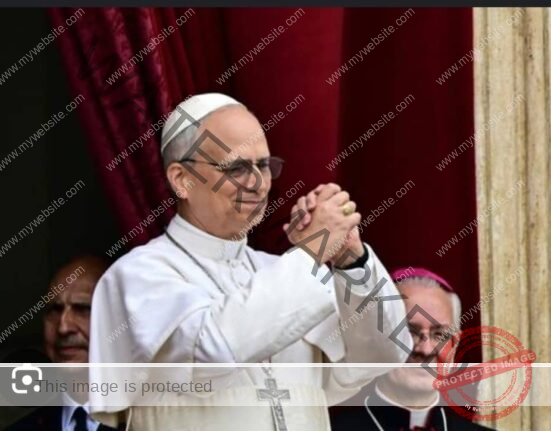
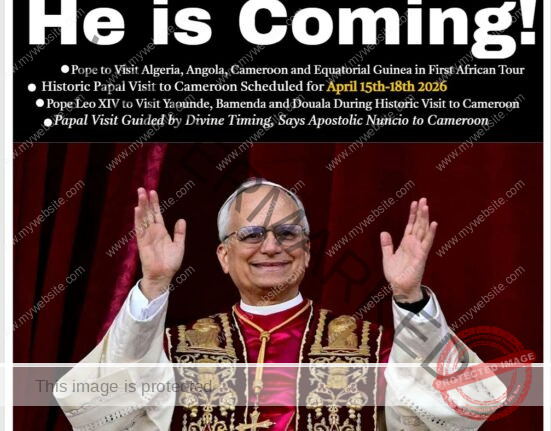
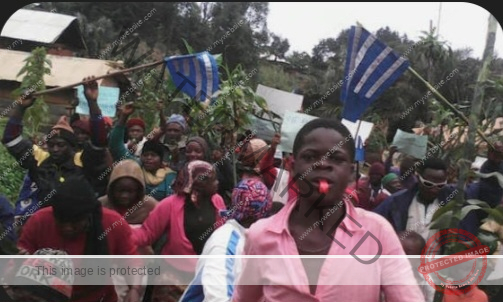
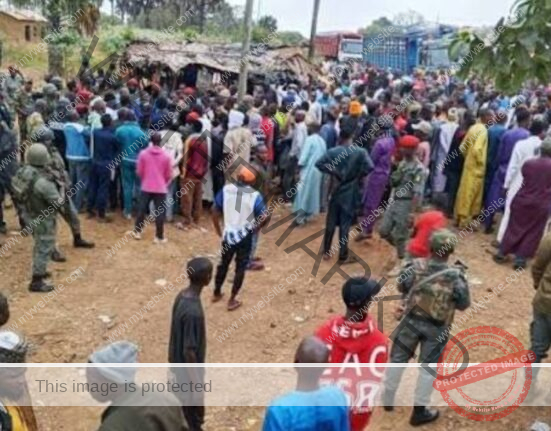
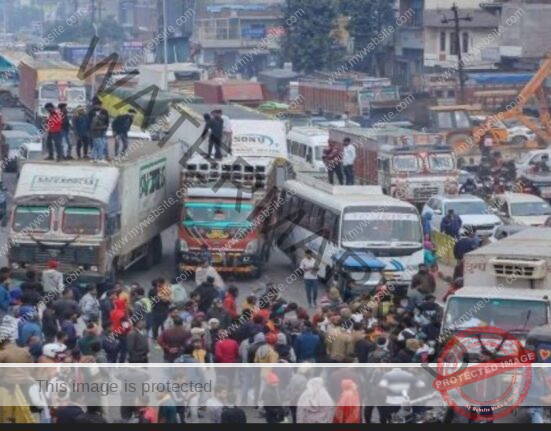
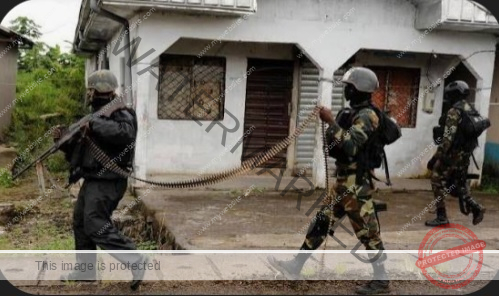

Leave feedback about this